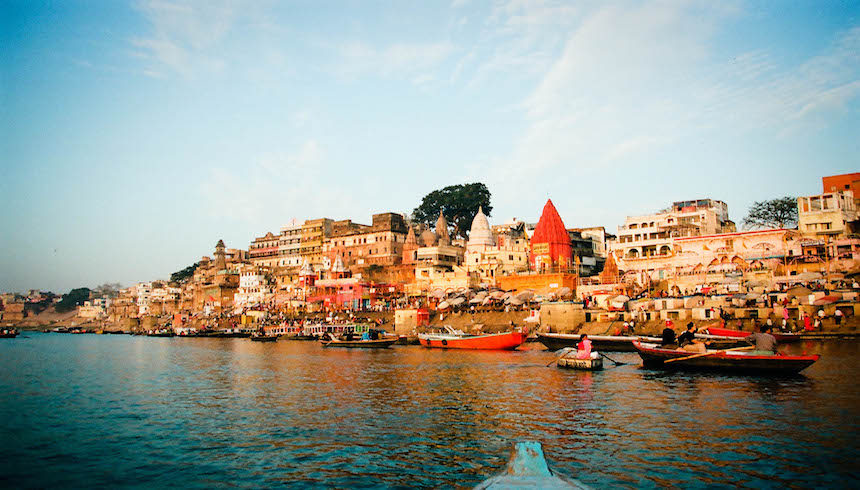Rivers Ganga and Yamuna now persons in the eyes of law!
This Article has been written by Anushree Soni, student of L.A.Shah Law College, Ahmedabad
The holy waters of Ganga and Yamuna are now declared, in a red-letter judgment, in the High Court of Uttarakhand to be a living entity, vesting in them fundamental rights and duties.
Facts:
The issue dates back to the year 2013, wherein the Private Respondents were encroaching upon the government land illegally and have also done some construction work over it without due and prior permission of the concerned authority. This issue was first brought into the notice of the Executive Engineer by the Petitioner upon which the Engineer has sent numerous notices to the Private Respondent in order to evict the land but to which they were indifferent.
Thereafter, the Engineer approached the Sub Divisional Magistrate and a committee was constituted in this regard. Even after bounteous of efforts the encroachers could not be evicted. Even after all the hodge-podge created by the Private Respondent they approached the court in order to get an injunction on the ground that it is their purchased land but the court was reluctant to grant any stay order.
Moreover, the Private Respondent raised an averment that in fact the land on which they have encroached belonged to the state of Uttar Pradesh and not to Uttarakhand, trying to make a point that the authorities of Uttarakhand have no jurisdiction over the encroached land and also that there is no clear cut boundaries decided between the two states but another Respondent stated that the land belonged to the Irrigation Department as per the revenue records.
The core issue:
There were many interconnected issues that were raised during the tenure of this petition. The following were the issues and all of them were very pertinent: –
- The need of fixing the boundaries of the two states and giving them authority of the lands and other assets that are situated in the border area.
- The state of Uttarakhand not being a part of the Upper Yamuna Board.
- Eviction of the Encroachers and their illegal construction.
- The mining that is disrupting the river bed of Ganga, which is increasing the possibility of causing the flood.
- From worshipping the waters of Ganga and Yamuna like holy gods to throwing waste and making it lose its very existence.
All these disputed points were a matter of concern not only to the Hon’ble judges of the High Court of Uttarakhand but the nation as a whole.
The verdict:
The judgment of Yogendra Nath v. Commission of Income Tax Calcutta, was cited during the hearing of the petition, wherein it was held that a Hindu idol is a juristic entity capable of holding property and of being taxed through its Shebaits who are entrusted with the possession and management of its property.
Also, Salmond in jurisprudence has quoted that, “A legal person is any subject matter other than a human being to which the law attributes personality”.
Hon’ble High Court was of a similar view and stated that both the rivers have provided both physical and spiritual sustenance to all of us from time immemorial and that both the rivers are breathing, living and sustaining the communities from mountains to sea.
Therefore, the constitution of Ganga Management Board and giving the rivers the status of living entity is of utmost importance because it serves the purpose of irrigation, rural and urban water supply, hydro-power generation, navigation, industries and most importantly it preserves and conserves the rivers.
The Director of Namami Gange, Chief Secretary of Uttarakhand and Advocate General of Uttarakhand are promulgated as persons in loco parentis. In the same token the Private Respondent is asked to evict the land within a period of twelve week, Central Government is asked to decide the basis of settlement between the two states for the division of assets and property, and has also directed to constitute a Ganga Management Board and also to include the state of Uttarakhand as a member of Upper Yamuna board. And forthwith the mining is also banned in the highest flood plain.
Why this Order is important:
This sort of a judgment wherein rivers are recognized as a legal entity has been passed for the first time in India. The only other time it has ever happened in the world is in New Zealand with respect to the Whanganui River.
A parallel was drawn between the two rivers. The Whanghui river of New Zealand and the waters of Ganga and Yamuna of India hold no difference when it comes to the faith and worship seen in the eyes of the people of the respective nations. The discongruity lied where the Whanghui tribe took years and years to prove the sacredness of its river to the rest of the world and especially to its very own country.
The problem in India is exactly paradoxical, the people of India are fully aware of its sacredness but still show no respect or integrity to its sacredness to protect it from those fellow Indians who throws waste and rubbish which makes it lose its very identity.
Supreme Court Advocate Nipun Saxena described this order as a beautiful order as until now legal identity was only given to idols of God. This time the court has gone beyond the four walls of a temple and given this status to rivers.
Effects of the Judgement:
- The rivers Ganga and Yamuna will hold the same legal rights as that of a person.
- They are like minors who will be placed under the cake of a guardian.
- Given that, the rivers are given legal status, the State of Uttar Pradesh and Uttarakhan can be sued on behalf of the rivers. Also, a case can also be filed against any polluter in the name of river itself.
- There will be an endowed fund set for the rivers which can be used by the guardian only keeping in mind the best interest of the rivers.
Conclusion:
The judgement indeed throws light on the significance of rivers such as Ganga and Yamuna, it throws light on the need to protect such rivers for the benefit of not just the worshippers but the environment and for the survival of life as a whole.
The order is a breakthrough in the object of protecting the rivers Ganga and Yamuna. One can only hope that the implementation is just as strong and effective as the judgement itself.
Picture Courtesy: Wikimedia







